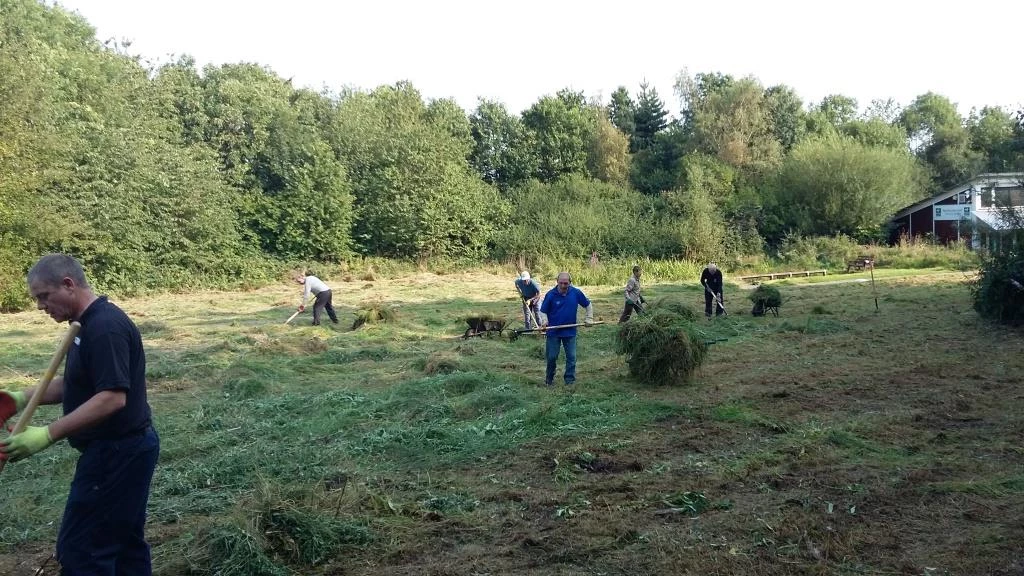
Partner Article
New report links volunteering in nature with better mental health
The Wildlife Trusts have published a new report which examines the effects of volunteering in nature on people’s mental health.
The study which was carried out by the University of Essex found: • 95% of participants who were identified as having poor levels of mental health at the start, reported an improvement in 6 weeks, which increased further over 12 weeks • The mental wellness of more than two-thirds (69%) of all participants had improved after just 6 weeks • Improvements were greatest for people new to volunteering with The Wildlife Trusts and those who had poor levels of mental health at the start • Participants also reported significantly enhanced feelings of positivity, increased general health and pro-environmental behaviour, higher levels of physical activity and more contact with greenspace.
The study, ‘The Health and Wellbeing Impacts of Volunteering with The Wildlife Trusts’ was the third phase of research carried out by the University of Essex on behalf of the 47 wildlife trusts, including Northumberland Wildlife Trust.
It assessed changes in 139 participants’ attitudes, behaviour and mental wellbeing over the course of 12 weeks during which time they took part in nature conservation and volunteering activities. Most of the participants were attending projects because of a health or social need (they may have been suffering with a mental health problem or were cut off from other people resulting in loneliness and inactivity).
In this region, hundreds of people benefit from volunteering with Northumberland Wildlife Trust each year from putting up fences and installing dams on reserves to building the Wildlife Discovery Centre at Hauxley on Druridge Bay and serving tea and coffee to customers from around the world at the wildlife charity’s two visitor centres on its reserves.
Duncan Hutt, Northumberland Wildlife Trust Head of Druridge Bay Living Landscape and Land Management says: “The results of this research project make a powerful case for nature having a larger role in people’s every-day lives. The evidence is loud and clear - volunteering in wild places while being supported by Wildlife Trust staff throughout the UK has a clear impact on people’s health; it makes people feel better, happier and more connected to other people. Participants also reported increases in their sense of connection to nature.
“The Department of Health should take note - our findings could help reduce the current burden on the National Health Service because they illustrate a new model of caring for people that does not rely solely on medication and traditional services.”
Dr Mike Rogerson, University of Essex, says: “.The research revealed how volunteering with meaningful, nature and craft-focussed activities may be beneficial to both the general public and individuals with defined needs. At a time when we are losing count of local and national-level health, wellbeing, loneliness, community, and NHS burden crises, engagement with the Wildlife Trusts’ volunteering activities can provide a much-needed antidote for individuals, local areas and the UK as a whole.”
Northumberland Wildlife Trust is always keen to receive enquiries from people interested in becoming a volunteer. For more information visit: http://www.nwt.org.uk/volunteer
This was posted in Bdaily's Members' News section by Sue Bishop .
Enjoy the read? Get Bdaily delivered.
Sign up to receive our daily bulletin, sent to your inbox, for free.






 A legacy in stone and spirit
A legacy in stone and spirit
 Shaping the future: Your guide to planning reforms
Shaping the future: Your guide to planning reforms
 The future direction of expert witness services
The future direction of expert witness services
 Getting people into gear for a workplace return
Getting people into gear for a workplace return
 What to expect in the Spring Statement
What to expect in the Spring Statement
 Sunderland leading way in UK office supply market
Sunderland leading way in UK office supply market
 Key construction developments in 2025
Key construction developments in 2025
 Mediation must be part of planning process
Mediation must be part of planning process
 From apprentice to chief financial officer
From apprentice to chief financial officer
 Don't stifle growth with apprenticeship cuts
Don't stifle growth with apprenticeship cuts
 The start-up landscape: What lies ahead in 2025
The start-up landscape: What lies ahead in 2025
 JATCO adds welcome drive to automotive sector
JATCO adds welcome drive to automotive sector